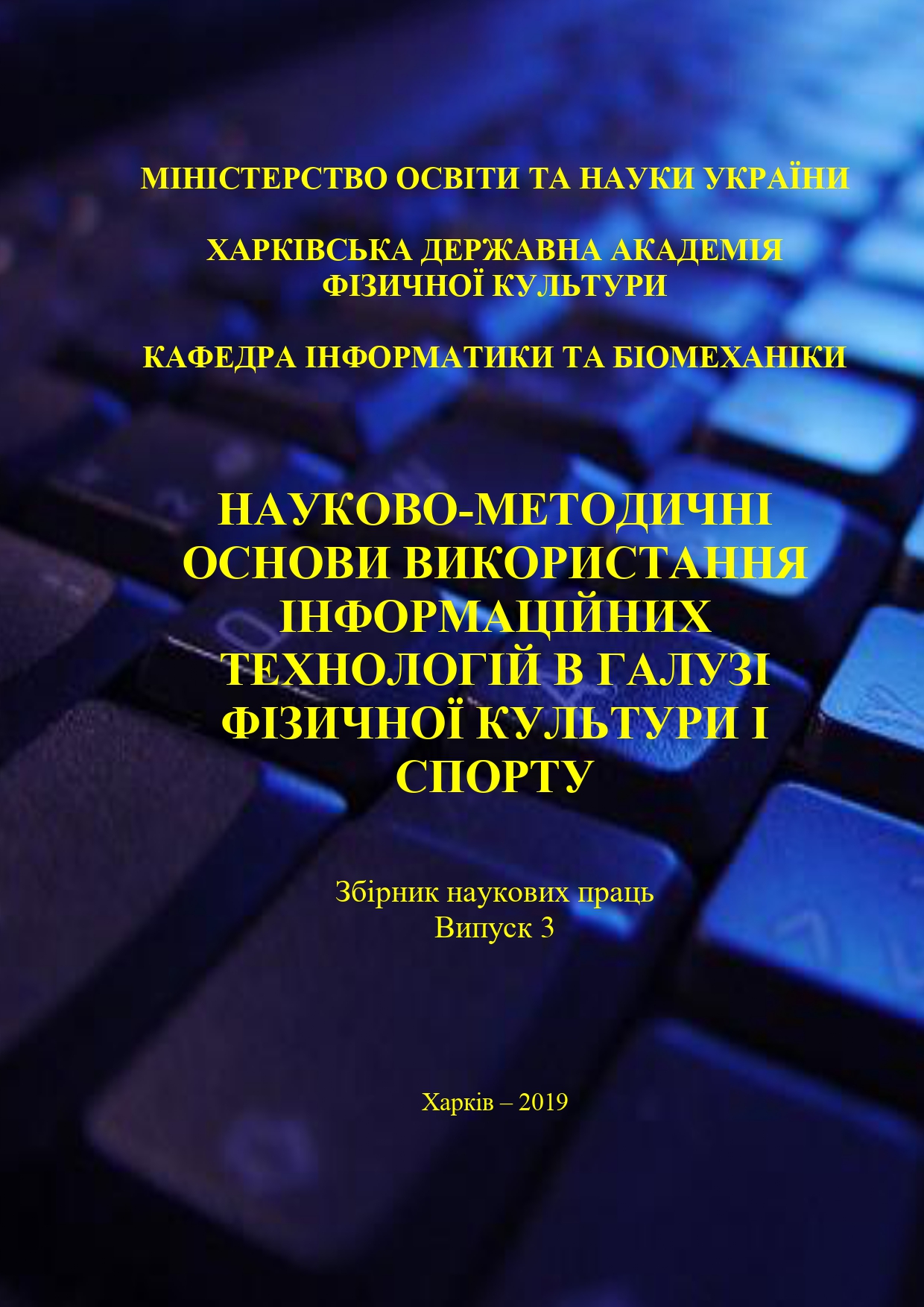ІНФОРМАЦІЙНО-СТРУКТУРНА МОДЕЛЬ ФІЗИЧНОГО СТАТУСУ ЗДОРОВ’Я
Keywords:
здоров’я, фізичний статус, інформаційні технології, моделювання. Abstract.Abstract
У статті надано загальну характеристику
інформаційно-структурній моделі фізичного статусу здоров’я людини,
охарактеризовано компоненти фізичного статусу, показники складових
фізичного здоров’я, сформоване уявлення про ієрархічну систему оцінок
стану фізичного статусу.
References
Апанасенко Г.Л. Вчення про індивідуальне здоров'я: деякі підсумки. Львівський медичний часопис, 2013, 19, 1, 56-60.
Висоцька О.В., Друзь В.А., Доброродня Г.С., Довнар О.Й.
Автоматизація визначення спрямованості порушень фізичного розвитку. Системи обробки інформації, 2018, 1 (152), 100-107.
Гриценко В.І., Котова, А.Б., Вовк, М.І., Кіфоренко С.І., Бєлов В.М. Інформаційні технології в біології та медицині. Курс лекцій. Київ: Наукова думка, 2007. 383 с.
Христова Т.Є. Інформаційний простір проблеми здоров’я. Збірник наукових праць «Науково-методичні основи використання інформаційних технологій в галузі фізичної культури та спорту». Харків, 2018, 2, 120-123.
Lange T. Model selection and information fusion in grouping pro. Zürich: Swiss Federal Institute of technology Zürich, 2006. 170 p.
Olsen K.M., Dahl S. Health differences between European countries. Social Science & Medicine, 2007, 64, 4, 1665-1678.
Downloads
Published
Issue
Section
License
Authors who publish with this journal agree to the following terms:- Authors retain copyright and grant the journal right of first publication with the work simultaneously licensed under a Creative Commons Attribution License that allows others to share the work with an acknowledgement of the work's authorship and initial publication in this journal.
- Authors are able to enter into separate, additional contractual arrangements for the non-exclusive distribution of the journal's published version of the work (e.g., post it to an institutional repository or publish it in a book), with an acknowledgement of its initial publication in this journal.
- Authors are permitted and encouraged to post their work online (e.g., in institutional repositories or on their website) prior to and during the submission process, as it can lead to productive exchanges, as well as earlier and greater citation of published work (See The Effect of Open Access).

